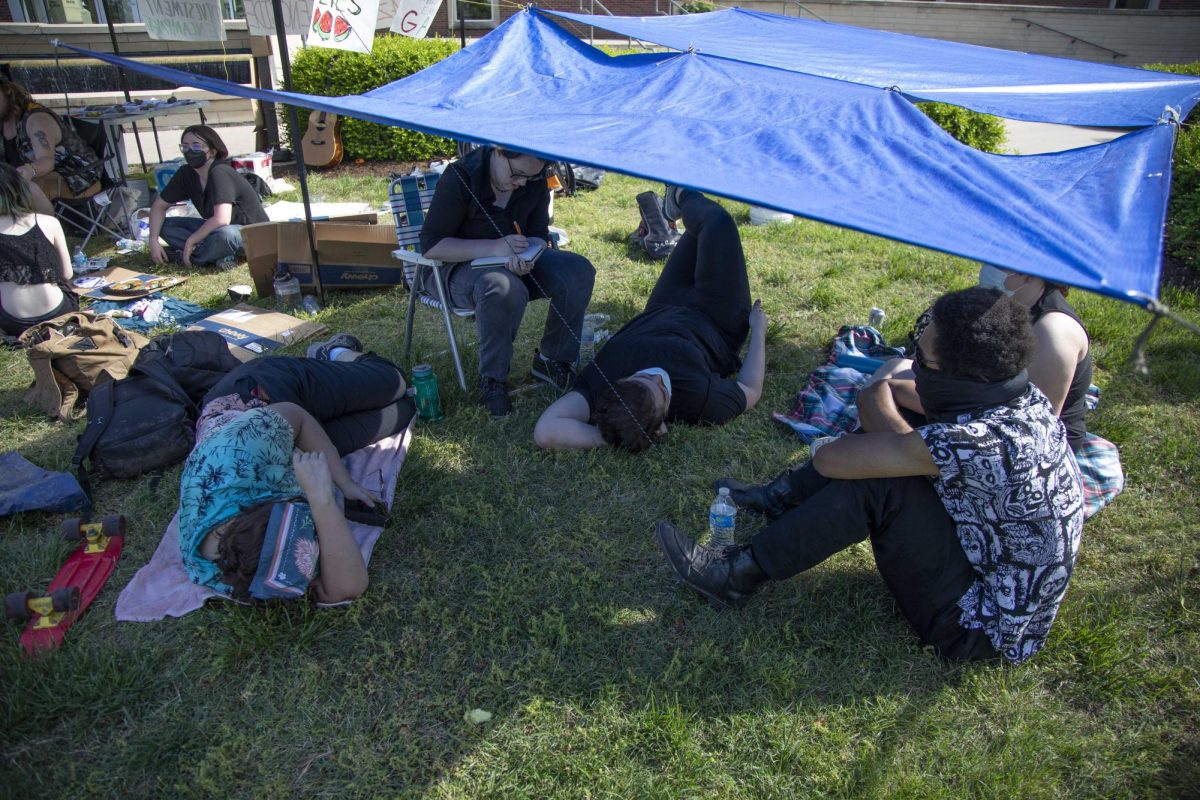Government shutdown near; Chicago leads nation in homicides
September 26, 2013
Congress struggles to avoid government shutdown
The Senate cleared a major hurdle Wednesday by voting to debate on a bill that would delay a government shutdown.
The vote to begin debate on the bill was passed 100-0 and includes language about defunding the Affordable Care Act, the main obstacle to passing a 2014 budget. If the bill passes the Senate, it will return to the House for further deliberation.
Advertisement
If Congress is unable to agree on a budget by the Sep. 30 deadline, the country will go into what is known as a government shutdown.
Under a shutdown, services throughout the country would be interrupted by forced worker furloughs. National parks and museums would shut down. Federal public works projects like road construction would halt. Military members would have to wait until a budget is passed for back pay, essentially being paid in IOUs.
Ironically, the Affordable Care Act’s, commonly known as Obamacare, implementation will remain unaffected by the shutdown since the funds are not tied to the passage of a congressional budget.
On Sunday, House Minority Leader Nancy Pelosi appearing on CNN’s “State of the Union” said that anti-government Republicans are holding the negotiations hostage.
“I call them ‘legislative arsonists,'” she said. “They’re there to burn down what we should be building up in terms of investments and education and scientific research, and all that it is that makes our country great and competitive.”
Charlie Leonard, a professor teaching public policy, said the political ramifications could be dire for Republicans, and especially the Tea Party wing, if they allow a shutdown to occur.
“Large majorities of the public according to surveys believe that threatening a government shutdown is not a way to negotiate,” Leonard said. “The Republicans are clearly seen to be the ones using a government shutdown as a negotiation tool – or if you will a hostage demand.”
Advertisement*
Leonard said if a long shutdown were to occur and affect voters, the Democrats could gain voters in 2014.
“They can say ‘Look at those crazy Republicans. If you give them control of the house, they’ll do this again,’” he said. “I think it depends on how long the shutdown lasts. If it happens and lasts a couple of weeks, causes actual hardship to voters or if it can be seen as obviously damage to the economic recovery, I think that hurts the Republican brand into the next election.”
The government went into shutdown mode in 1995 and 1996 during the Clinton Administration. The Office of Management and Budget estimated the cost at $1.4 billion. That is over $2 billion today, adjusted for inflation.
Kevin Sylwester, a professor teaching courses in macroeconomics, said only around 10 percent of expenditures would be affected making the effect on the economy much less dire. He said a larger effect from the shutdown could come from the private sector.
“Businesses don’t like uncertainty,” Sylwester said. “If businesses are less able to predict what various policies or government spending will look like in the future, it becomes more difficult for them to plan. When that becomes more difficult, sometimes the safest thing to do is stay pat.”
Sylwester and Leonard both said the length of the shutdown would be the largest determining factor
“If it goes on for a few days and both sides get together and work it out, the effects (on the economy) will be very small,” Sylwester said. “Obviously if you have one that lasts longer the potential is greater.”
FBI releases 2012 crime statistics; Chicago leads in homicides
On Monday, the FBI released its report on 2012 crime statistics, with Chicago reporting more murders than any other city in the country.
Chicago reported 500 murders last year, up from 431 in 2011, and increase of nearly 14 percent. Chicago has witnessed an increase in crime over the past few years.
However Chicago did not have the highest murder rate. That dubious distinction belongs to Flint, Mich., which had just under 65 homicides per 100,000 residents. Chicago recorded just under 19 per 100,000. St. Louis had a rate of 35.5.
The nation witnessed an overall increase in violent crime by 0.7 percent after nearly a decade of decline.
Illinois journalist fined for withholding source
A Joliet, Ill. journalist was issued a contempt of court order Friday for failure to reveal one of his sources.
Joseph Hosey, an editor for the online news service the Joliet Patch, was found in contempt of court by Circuit Judge Gerald Kinney for refusing to identify a confidential source who supplied him with police documents outlying previously unreleased details of a grisly double homicide in Joliet to the defense.
Under Illinois shield law, a journalist can be compelled to give up his or her source if it has been shown that all other avenues of obtaining information have been exhausted.
William Freivogel, a professor teaching courses in media law, said based on news reports he, did not see any evidence that this has been the case with Hosey.
“What the defense lawyer may be trying to prove is some type of prosecutorial misconduct,” he said. “Sometimes criminal charges are dismissed because of prosecutorial misconduct. For instance, prosecutors leaking a police report or grand jury evidence in order to whip up sentiment against a defendant.”
Kinney fined Hosey $1000 plus $300 for each day he refuses to identify the source. He has a 180-day deadline to reveal who the source is or face up to six months in jail.
Advertisement







